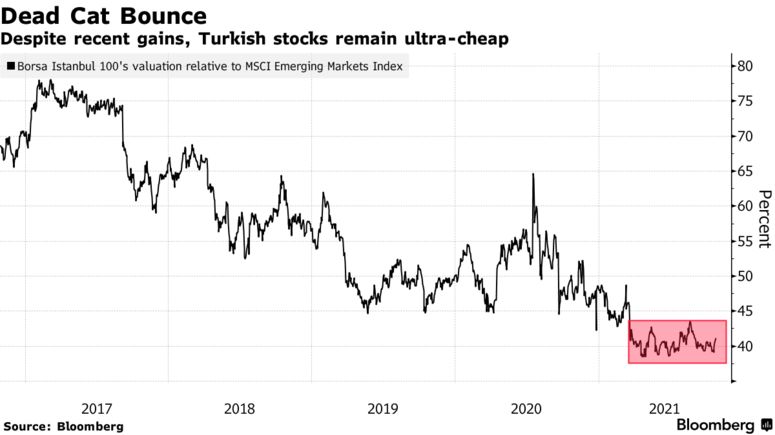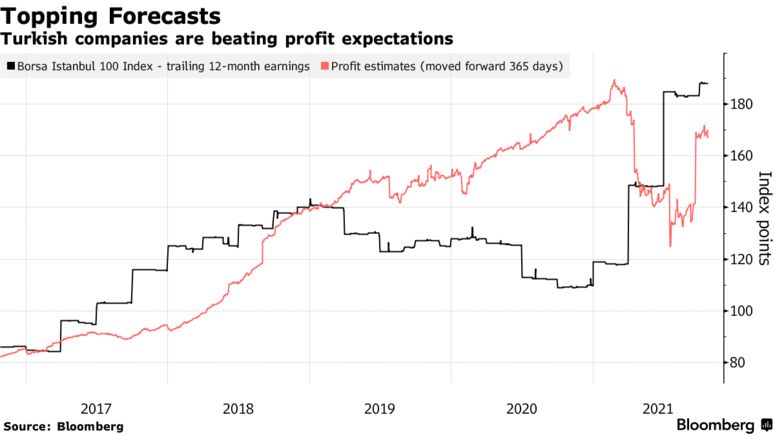Turkey market ructions have claimed the nation’s currency and bonds among their victims, but stocks are defying all odds to post one of the world’s best performances this month.
The benchmark Borsa Istanbul 100 Index has rallied more than 7% in October, the sixth biggest advance globally in local-currency terms. The gains have come despite a surge in inflation to about 20%, a foreign exodus from the lira, sovereign yields at 2019 highs, and a diplomatic spat that threatened to deepen tensions between Turkey and the West.
Industrials Shine
Besides exporters, industrial companies serving the domestic market are also making major contributions to the index. A revival of business activity after pandemic closures, renewed demand and a supply squeeze are all adding to their fortunes.
“Operational profits of companies are quite good, especially exporter industrial companies are in good shape,” said Burak Cetinceker, a money manager at Strateji Portfoy in Istanbul.
Wafer-Thin Positioning
Investors withdrew a net $1.3 billion from Turkish equities this year through Oct. 15, according to central-bank data. Foreign ownership fell to record lows of 41%, according to the Central Securities Depository. With such sparse positioning, any small buying can boost markets disproportionately.
Store of Value
While most foreign investors have departed, local buyers are rushing into the market. To hedge against double-digit inflation, they are increasingly parking their funds in equities.
“Selling FX to buy Turkish stocks seems like a manageable bet,” said Cetinceker of Strateji Portfoy.
Valuation Appeal
The Borsa Istanbul gauge trades at 5.3 times projected earnings, a 60% discount to average emerging-market valuations. At this price, some foreign investors are tempted to return.
What Next
Despite the rally, Turkey’s stock market remains an underperformer for the year, trailing about 75 other countries.
“As long as economic policies stay unconventional and lack consistency for a longer-term sustainable development, market performance is likely to stay erratic,” said Kahlfeld.
Bloomberg

